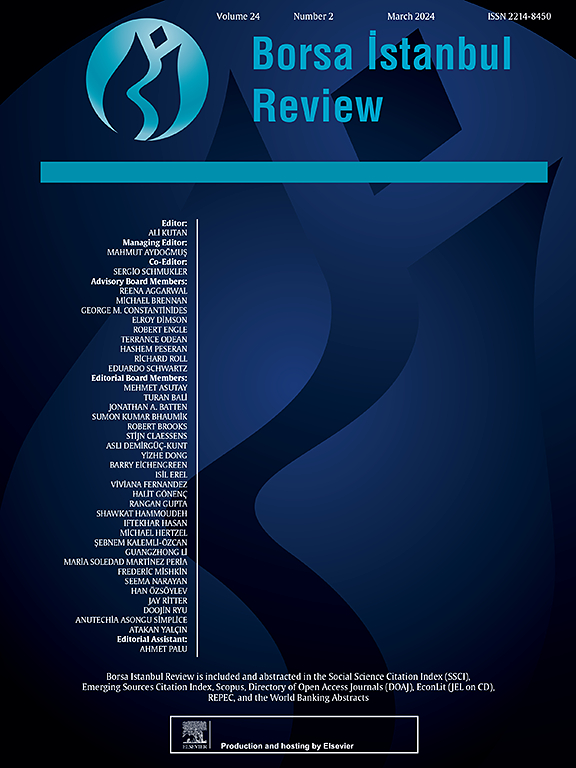Threshold effects of institutional quality on the financial inclusion and stability nexus: International evidence
IF 6.3
2区 经济学
Q1 BUSINESS, FINANCE
引用次数: 0
Abstract
This study employs the dynamic panel threshold estimation technique to examine whether the influence of financial inclusion on stability varies across countries with different levels of institutional development. This study analyzes 11,209 observations of bank-level data from 78 developed and developing countries from 2004 to 2022. The findings indicate a threshold effect in the relationship between financial inclusion and stability. Specifically, for institutional quality below the threshold, financial inclusion has an insignificant stability effect. However, after reaching a certain threshold of institutional development, the effect of financial inclusion on financial stability becomes positive and significant. These findings suggest that the impact of financial inclusion on stability is contingent on institutional quality. Enhancing institutional quality to minimize risk can enhance the stability benefits of expanding financial inclusion. These findings remain robust across alternative empirical approaches and disaggregated measures of financial inclusion and institutional quality. These findings have important implications for policymakers formulating strategies for improving financial inclusion and economic stability.
求助全文
约1分钟内获得全文
求助全文
来源期刊

Borsa Istanbul Review
Multiple-
CiteScore
7.60
自引率
3.80%
发文量
130
审稿时长
26 days
期刊介绍:
Peer Review under the responsibility of Borsa İstanbul Anonim Sirketi. Borsa İstanbul Review provides a scholarly platform for empirical financial studies including but not limited to financial markets and institutions, financial economics, investor behavior, financial centers and market structures, corporate finance, recent economic and financial trends. Micro and macro data applications and comparative studies are welcome. Country coverage includes advanced, emerging and developing economies. In particular, we would like to publish empirical papers with significant policy implications and encourage submissions in the following areas: Research Topics: • Investments and Portfolio Management • Behavioral Finance • Financial Markets and Institutions • Market Microstructure • Islamic Finance • Financial Risk Management • Valuation • Capital Markets Governance • Financial Regulations
 求助内容:
求助内容: 应助结果提醒方式:
应助结果提醒方式:


